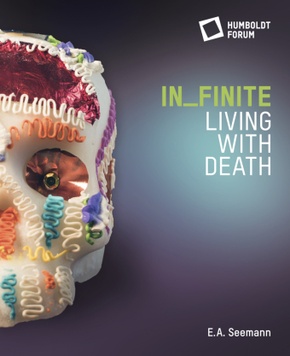| Verlag | Seemann |
| Auflage | 2023 |
| Seiten | 200 |
| Format | 22,0 x 2,1 x 27,1 cm |
| Gewicht | 1109 g |
| Artikeltyp | Englisches Buch |
| ISBN-10 | 3865025072 |
| EAN | 9783865025074 |
| Bestell-Nr | 86502507A |
REGARDING OUR APPROACH TO THE END OF LIFE Death is a universal human experience. The knowledge of our own mortality connects us - beyond all boundaries of space, time and social conventions. Even while we're still alive, the great unknown presents us with a multitude of questions, affecting us in different ways: Is there life after death? What is a 'good death'? How do we find comfort? What remains of me? This book discusses possible answers from an individual point of view as well as from a cultural and social perspective. It forges a bridge between the nature of our fleeting existence and a culture of death that can be shaped, between the certainty of our own passing and the awareness of the impending loss of all our livelihood through the extinction of species.-Reflecting on the great unknown: What does death mean today?-Conceptions of the afterlife, funerary rites, and commemoration of the dead all around the world-Experts from the fields of journalism, philosophy, medicine, f orensics, art, ecology, archaeology, psychotherapy, palliative care, zoology, and sociology illuminate the topic in all its facets-On dignity, mourning, and living with the dead-Essays, interviews, personal accounts, and photo spreadsAN ENCOUNTER WITH THE MANY DIFFERENT NOTIONS OF DEATHIn a wide-ranging compilation of essays, interviews and personal accounts, "in_finite. Living with Death" offers a multi-layered look at beliefs about the afterlife, funerary rites, the treatment of the dying, and coping with grief. Here, the perspective extends far beyond the European cultural sphere. Alongside experts from various fields of science, representatives of religious communities such as Judaism, Christianity, Islam, Hinduism, and the Yoruba religions, also share their views and provide nuanced accounts of diverse, including non-Western, perspectives on the end of life. This book offers an approach that contributes to a holistic understanding of death and makes it possible to ask questio ns that remain hidden in everyday life.ABOUT THE FINAL CHAPTER OF OUR BEINGFor all the broadness of its thematic scope, the book is clearly structured around key topics. The individual contributions range from reflections on immortality by the philosopher and journalist Stephen Cave to factual descriptions of the process of dying by Dr Jens Dreier of the Berlin Charité hospital and touching reports from the everyday lives of end-of-life caregivers from all over the world.The publication accompanying the exhibition "un_endlich. Leben mit dem Tod" is published by the Humboldt Forum Foundation in the Berliner Schloss. With contributions by Stephen Cave, Robin Wall Kimmerer, Matthias Glaubrecht, Cristina Cattaneo, Hartmut Dorgerloh, Jens Dreier, and others.
Rezension:
Ein höchst inspirierender, wachrüttelnder und nicht selten tröstlicher Zugang zur wichtigsten aller Menschenfragen. Magazin LEBEN & TOD (3/2023) Das eindrucksvoll bebilderte Buch vermittelt und verbindet wissenschaftliche, künstlerische und spirituelle Perspektiven, macht damit den Tod ganzheitlich begreifbar. www.wallos-kulturschock.de Ein höchst inspirierender, wachrüttelnder und nicht selten tröstlicher Zugang zur wichtigsten aller Menschenfragen: Wie richtig zu leben wäre im Angesicht des Todes. Forum für kulturelle Dimensionen Die eindrucksvollen Bildstrecken fangen visuell ein, wie wir dem Tod in Ehrfurcht, Schmerz, Angst oder Sehnsucht gegenüberstehen. Ungewöhnlich! Wiener Zeitung / Wiener Journal Die Statistiken finden sich auch im Buch zur Ausstellung, dort sogar in ihrer ursprünglichen Form, denn manche Grafiken wurden für die Schautafeln vereinfacht. Auch andere Themen werden erst mit der Lektüre des Begleitbandes in aller Komplexität greifbar. taz.de "...nach der szenischen Ausstellung freut man sich darauf, den gut gestalteten und verständlich erklärenden Band wieder zur Hand zu nehmen. Dokumentarische Beiträge, Essays, Interviews und künstlerische Bildstrecken vertiefen die Themen, die einem möglicherweise noch nachhängen..." Netzwerk Trauerkultur

